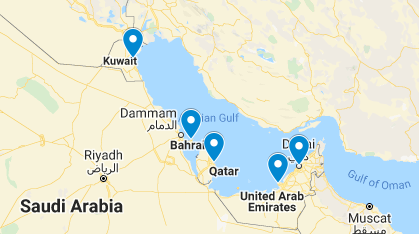Full Report At: http://www.kippreport.com/fcs/using-your-indicators-is-a-sign-of-weakness/
By Peter Ellen
I was reading the letters section in Gulf News the other day, and people were having a general moan about the quality of driving we experience here in Dubai (and it is awful), and one of the correspondents wrote that using one’s indicators was a sign of weakness. Immediately, I wrote this comment off as the raving of a lunatic, but I have thought about it several times since, and it seems worthy of further consideration.
Using your indicators is a form of communication – you’re telling other motorists that you intend to take an action other than continuing to do what you are doing. Typically, either this is turning left or right, or moving into the lane on your left or right. For some motorists, who perpetually seem to be in the wrong lane for what they want to achieve, it indicates they are going to push in front of you (whether you like it or not) in order to achieve their goal, at least partly at your expense. For example, how often have you missed getting through the lights at a left turn because someone has approached in the wrong lane, stopped just short of the lights, signalled left, forced cars to stop and slow down, and then maneuvered themselves into the queue?
So, using your indicators can be about passing information – letting others know your intentions – and as such is about risk-management. It’s safer to let others know your intentions when they are inherently dangerous, e.g. turning across traffic and changing lanes are amongst the biggest causes of accidents. It can also be about letting others know that you have made a mistake and need to correct it – e.g. getting into the right lane for a turn. And, it can be about telling others that you are about to be rude and selfish at their expense and don’t care.
Of course, for the motorist who truly believes that using his (or her) indicators is a sign of weakness, then they ought to go the whole way and have their brake lights disconnected, too. It seems half-hearted not to use your indicators, when your car is communicating for you every time you touch the brakes – surely, a truly ‘strong’ motorist would take a positive action…
Communication is important in financial planning. Many of us wish that we were better insured or saved more from what are often adequate or good incomes. When the day of reckoning arrives, we find that we are under-insured or have saved too little to meet the obligations that were apparent a long time ago. In this situation, communication serves as a way of signalling our intention to others, especially those we love.
Most of us find that an intention, once communicated, becomes a commitment. It can be spoken or written down, or preferably both and somehow becomes more solid and meaningful than the mere intention that we held in our minds. We see this at work all the time. For example, in a sales environment, we seek written commitments from salespeople and managers; in a strategic environment, we would typically not entertain a new project unless there was a written promise of a financial return over a defined period. Then we measure results along the way, assessing our progress towards the objectives.
Of course, Financial Advisers have a part to play in this situation – they can help you to formulate your plans, set objectives and, most importantly, remind you of the importance you assigned to them as you progress through your busy life. All this, in written documents that can be reviewed in formal meetings.
Communication is not a sign of weakness. It is the signal that an intention has become a commitment. The risk still exists that it will not be executed, but the chances of success are higher.
Peter Ellen is operations director at Nexus Insurance Brokers www.nexusadvice.com. He has worked in the sales industry for 28 years in senior management positions and as a consultant. To contact Peter for advice with any insurance and investment advice please email him at peter.ellen@nexusadvice.com.

